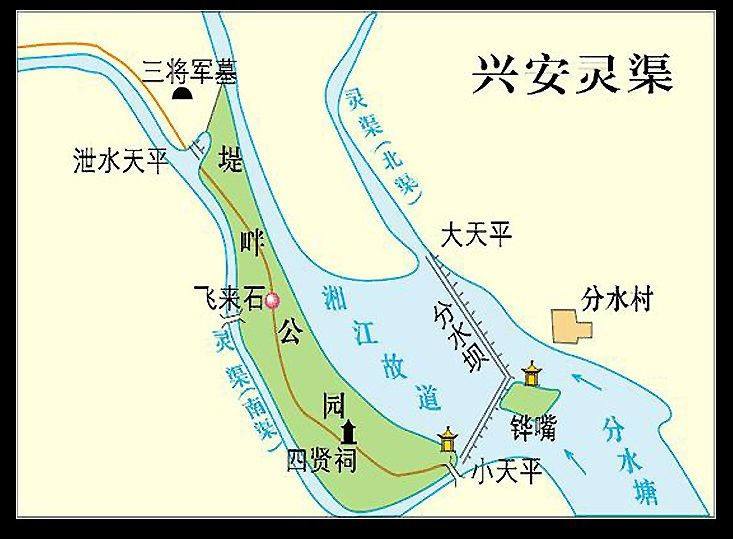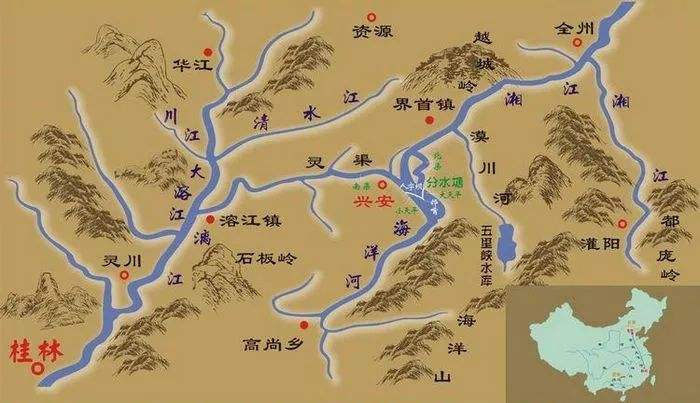sketch Map of the Ling canal
2 min readOn the pretext of the palaces in Xianyang being too small, starting from 212 BC Ying Zheng employed more than 700 thousand civilian laborers to construct the Epang Palace in the Shanglin Imperial Garden on the south bank of the Wei River. With a perimeter of about 462 meters, the palace could accommodate ten thousand people. The project of great magnitude remained uncompleted until 206 BC when the building was burnt down by the insurrectionary army led by Xiang Yu.

Meanwhile, following the custom of burying with full honors which was popular among the nobility, no sooner had Ying Zheng been enthroned than he set about building his own mausoleum atthe northern foot of Mount Li(in present Lintong of Shaanxi). According to historical records, the magnificent mausoleum was 115.5 meters high and was about 2.5 kilometers in circumference. Both Ying Zheng and his son Huhai(the Second Emperor) invested tremendous manpower and resources in that project, which finally discontinued as a result of the large-scale peasant uprising launched by Chen Sheng and Wu Guang in the last years of the Qin Dynasty.
Burning Books and Burying Confucian Scholars Alive-Guilty of the Most Atrocious Crimes In 213BC, in a royal banquet held in Xianyang court academician Chunyu Yue openly criticized the system of prefectures and counties, and hoped to restore the system of enfeoffment. Claiming that the various schools of thought and their exponents since pre-Qin times could do no good but might easily sap public confidence, the then Chancellor Li si suggested burning up all books except for the Legalist works and those about the history of the Qin State, medicine and pharmacology, divination, and tree planting. This was a cultural catastrophe, and an extensive pre-Qin literature had been destroyed overnight.

The next year, two necromancers spread slanders against Ying Zheng to stir up discontent among the people. The furious emperor then gave orders to bury more than 460 Confucian scholars alive in the capital.
Under Ying Zheng’s despotic rule, complaints were heard everywhere, and the end of the empire was drawing near.








